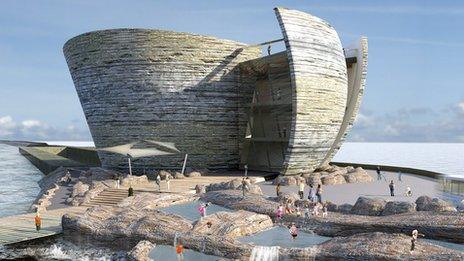David Cameron's enthusiasm for Swansea tidal lagoon 'reducing'
- Published

An artist's impression of how the lagoon around Swansea Bay could look
Prime Minister David Cameron's "enthusiasm" for the proposed £1bn tidal lagoon in Swansea Bay is cooling due to the cost, he has said.
Concerns over the electricity strike price - a government subsidy for the power generated - remained a "problem", he told a committee of MPs.
The UK government must give its "full backing", Welsh Liberal Democrats said.
Tidal Lagoon Power, the company behind the plan, said it was "confident" it could hit a "viable" price.
It warned in October that building work was being delayed by a year to 2017.
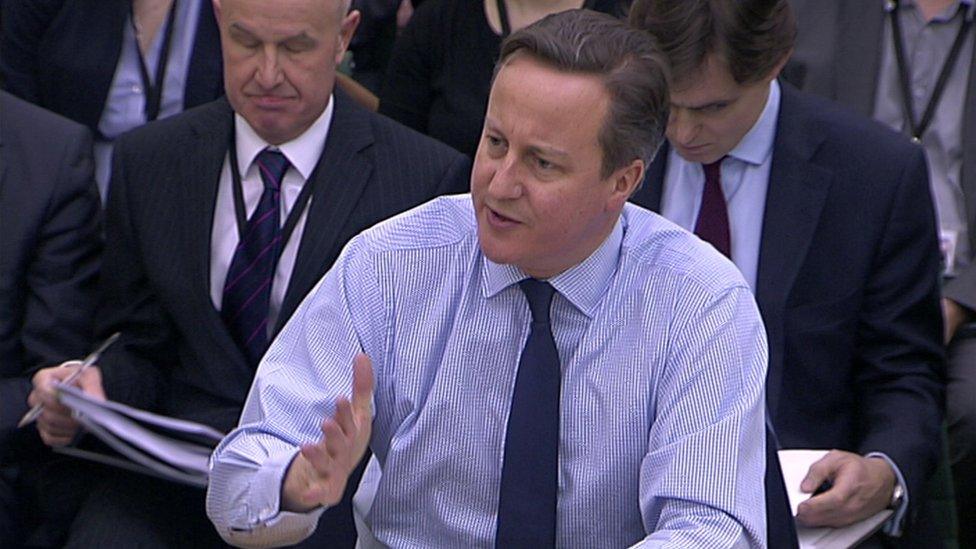
Questioned about tidal power on Tuesday, Mr Cameron said: "The problem with tidal power, simply put, is that at the moment we have not seen any ideas come forward that can hit a strike price in terms of pounds per megawatt-hour that is very attractive.
"That is the challenge for tidal. Maybe they can come up with something.
"They are very long-term schemes with big investments up front, and they can last for many, many years, but right now my enthusiasm is reduced slightly by the fact that the cost would be quite high."
'Must invest'
In response to Mr Cameron's comments, Peter Black, the Welsh Lib Dem AM for South Wales West, called for the UK government to "stop playing games" with the project.
"The Swansea Bay Tidal Lagoon will bring undoubted benefits to our area and Wales as a whole, not just in terms of green energy but by creating thousands of new green jobs," he said.
"If we're going to increase our renewable energy generation, we must invest in these new technologies."
It comes after Swansea West MP Geraint Davies said in November it was vital for a "greener future", and accused ministers of "back-pedalling" on their commitment to the lagoon.
Tidal Lagoon Power said: "The prime minister is spot on: tidal power will make a huge contribution to the UK economy, carrying with it a wide range of social and environmental benefits.
"Clearly there is a price at which this prospect becomes viable and through our ongoing negotiation with government we are very confident that we can hit that price."
- Published26 November 2015
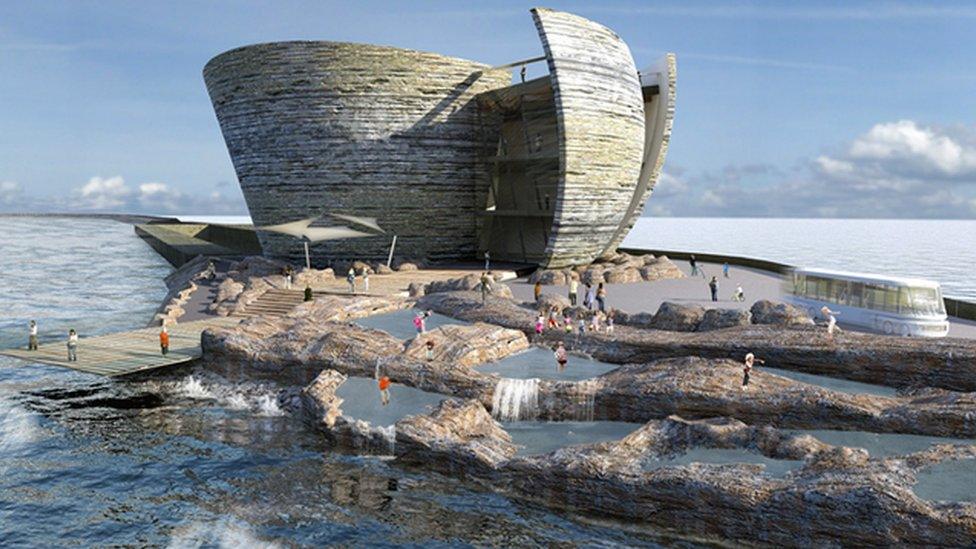
- Published15 October 2015
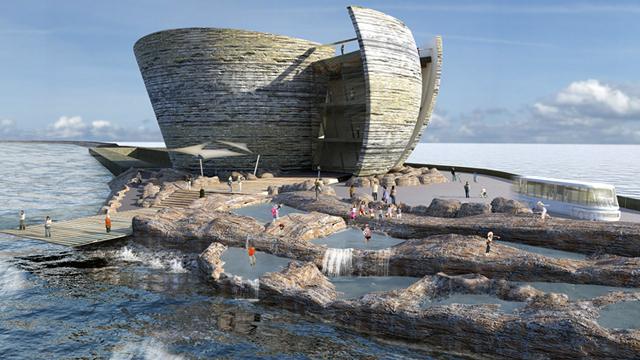
- Published2 October 2015

- Published10 June 2015
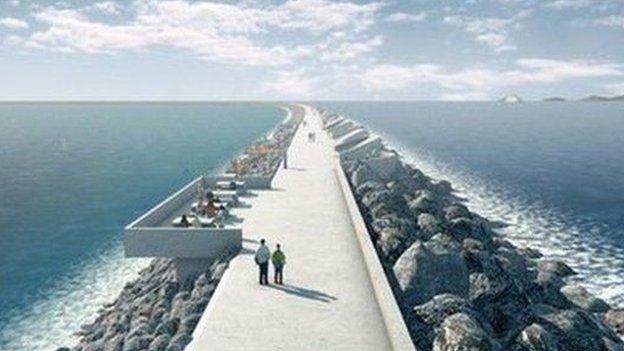
- Published18 March 2015
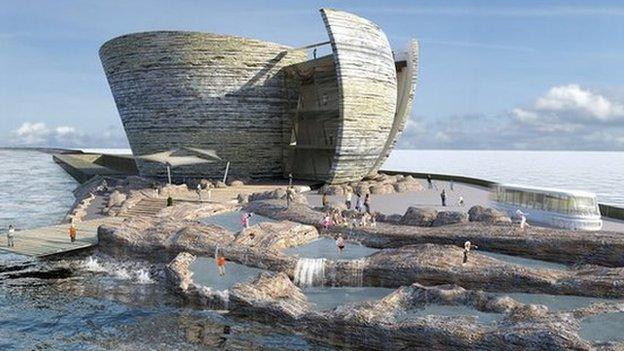
- Published7 February 2014
